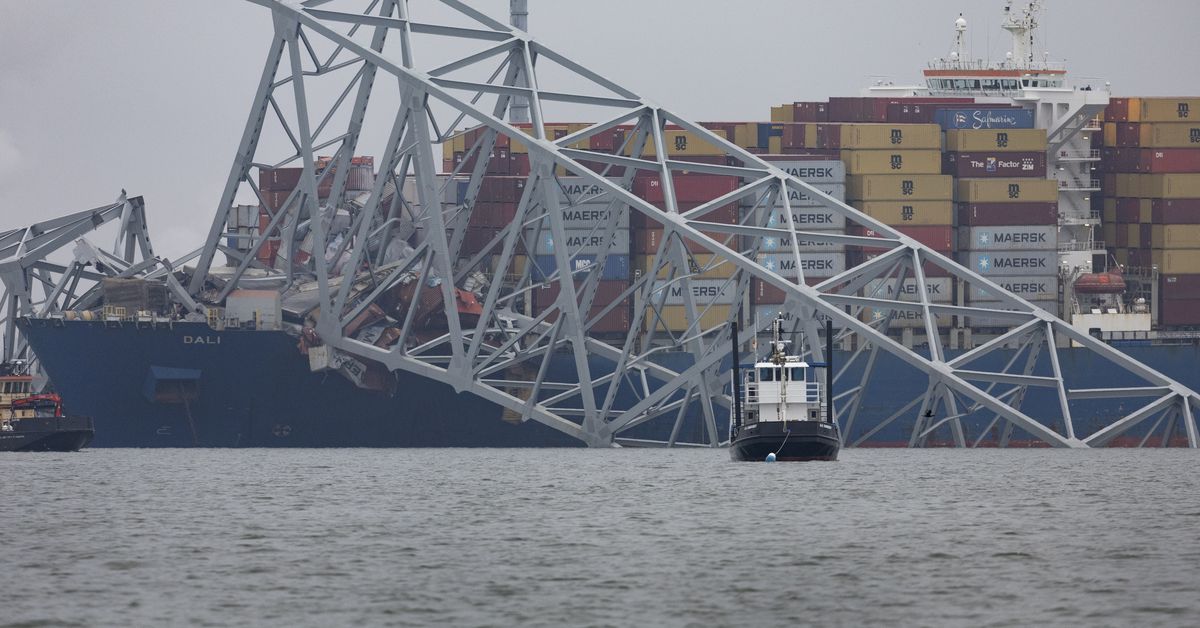- cross-posted to:
- [email protected]
- cross-posted to:
- [email protected]
I live in Baltimore. If one more automated website algorithm smashes the news of this bridge into my face I’m gonna scream out loud. I have to constantly click “not interested” on my YT front page. “Oh, this dude lives in BMore, I bet he wants to know about the fucking tangled wreck he can literally see every day from his house 24/7”.
Not because of you, OP, you’re cool.
I’m sorry. I can imagine that’s exhausting.
To be fair to the algorithm, there may be a lot of people in your area who are just mainlining that shit 24/7 out of raw anxiety, and the algorithm is just feeding that.
I say “to be fair”, because I think this horrific description of what the algo is doing to people’s mental health is entirely accurate.
If it makes you feel better I’m half the country away and wake up to 3 new articles a day about it. I clicked the first one which I guess was my mistake but it seemed important.
Hey since you’re here, there’s something I was wondering about that these articles don’t go over: what happens now while the bridge is rebuilt? Is there another one nearby that traffic is redirected to, or is there a ferry service now?
There are two tunnels that carry 95 through the center of the city, and the other side of the 695 beltway that takes you around the city on the opposite side of the bridge. That bridge was mainly used by shipping companies from all the distribution centers and warehouses on the southeast side, so now they’ll all have to go an extra several dozen miles around the other way and making normal traffic a nightmare.
It’s times like this that I remember how little traffic there was all through covid when everyone was quarantining or working from home. Imagine if the city ordered people to work from home to free up traffic for shipping until a new bridge is built.
Line up a few years’ worth of tragedies and disasters, and the online conversations about them will reveal their patterns.
Great start, sadly the rest of the article doesn’t include any comparable patterns or statistics that the writer claims they see, just rage bait quotes from tweets by other rage baiters
To be fair, there are no statistics. You can’t just query Twitter anymore, at least not for a reasonable price. So the only source is Musk, which is sketchy at best.
This is the best summary I could come up with:
The same conspiracy-theory-peddling personalities who spammed X with posts claiming that Tuesday’s Baltimore bridge collapse was a deliberate attack have also called mass shootings “false flag” events and denied basic facts about the Covid-19 pandemic.
A Florida Republican running for Congress blamed “DEI” for the bridge collapse as racist comments about immigration and Baltimore Mayor Brandon Scott circulated among the far right.
As conspiracy theorists compete for attention in the wake of a tragedy, others seek engagement through dubious expertise, juicy speculation, or stolen video clips.
The boundary between conspiracy theory and engagement bait is permeable; unfounded and provoking posts often outpace the trickle of verified information that follows any sort of major breaking news event.
First, it was happening after a few big shifts in what the internet even is, as Twitter, once a go-to space for following breaking news events, became an Elon Musk-owned factory for verified accounts with bad ideas, while generative AI tools have superpowered grifters wanting to make plausible text and visual fabrications.
Being online during a tragic event is full of consequential nonsense like this, ideas and conspiracy theories that are inane enough to fall into the fog of Poe’s Law and yet harmful to actual people and painful to see in particular when it’s your community being turned into views.
The original article contains 842 words, the summary contains 217 words. Saved 74%. I’m a bot and I’m open source!
This summary sucks. TLDR: A Baltimore journalist noticed unfamiliar X accounts posting sus stuff about the bridge.
Here’s the most important paragraph in the article:
Snowden (a Baltimore journalist) was up during the early morning hours when the bridge collapsed. Baltimore’s X presence is small enough that journalists like her generally know who the other journalists are working in the city, especially those reporting on Baltimore itself. Almost as soon as news broke about the bridge, though, she saw accounts she’d never heard of before speaking with authority about what had happened, sharing unsourced video, and speculating about the cause.
Over the next several hours, the misinformation and racism about Baltimore snowballed on X. For Snowden, this felt a bit like an invasion into a community that had so far survived the slow death of what was once Twitter by simply staying out of the spotlight.
I think the bot just pulls some of the sentences it thinks are most important. Sometimes it’s useful but more often it clearly omits key sentences and what remains then doesn’t make sense. I appreciate having it mainly for giving me an idea of if the article looks worth reading or not, and also just how long the actual article is.







